ANN ARBOR, MI – The William Davidson Institute (WDI) at the University of Michigan is hosting a group of 12 engineering faculty from six different universities and research institutes in the state of Chihuahua, Mexico, as part of a study visit to Michigan this week. The visit is part of the Zero-Emissions Vehicle (ZEV) academic partnership implemented by WDI with support from the U.S. Mission Mexico Public Diplomacy Section.
The shift to ZEVs means educational and training institutions around the world must adapt their curricula to better respond to the evolving talent needs of the automotive industry. Educators will need to develop new courses in emerging areas, update lab equipment and facilities for hands-on training and testing, and identify new research areas, WDI research shows.
With ZEV production growing across North America and around the globe and with many new players entering the industry, preparing the workforce that will enable this transition becomes crucial. In the state of Chihuahua, Mexico, which has a robust automotive manufacturing industry, several universities are interested in integrating ZEV-related content into existing courses and creating new ones, launching new areas of research, and establishing ZEV innovation centers to propel the state toward an electric future. Partnerships are vital for educational institutions in reaching these goals.
“We recognize that the ZEV industry requires a new generation of workers with different skills and competencies,” said Fernando Alba, Undersecretary for Energy, Mining and Industry of the State of Chihuahua. “Just as we provide the talent for the traditional automotive industry, we will be well positioned to support this shift to electrification in Chihuahua, a region known for its strong manufacturing base and skilled workforce. The ZEV academic partnership and our broader engagement with WDI are helping us access world-class expertise from Michigan and develop new academic and business collaborations.”
Within academic institutions, this shift is being felt in the classrooms, in the labs, and beyond—and key to the success of new endeavors is the faculty teaching, researching, and innovating in this space.
Before arriving in Michigan, ZEV program faculty participants completed a virtual program over the course of six months, which was designed by WDI and provided an overview of Michigan’s approach to developing ZEV talent, highlighting programs and initiatives from U-M and other players across the state.
The visit is providing an immersive experience for faculty by sharing teaching and research related to ZEVs in Michigan, with the goals of deepening their knowledge and seeding future collaborations in this area. Throughout the week, the group will tour the University of Michigan’s Battery and Auto Labs, the Ford Robotics Building, Mcity, and other U-M engineering facilities. The visiting faculty also will meet with students, including teams and clubs such as the U-M Solar Car team, U-M Electric Boat, Michigan Mars Rover team, Supermileage club and Michigan Climate Ventures.
“Universities and other educational institutions working to update their existing curricula or create new programs to develop ZEV talent will need faculty with the knowledge to teach this new content, said Diana E. Páez, Senior Director, Energy & Mobility. “This means that upskilling is not limited to industry—academia too must invest in preparing educators and researchers to teach and innovate around ZEV technology.”
Beyond U-M, the group also has the opportunity to learn about ZEV training programs offered at Washtenaw Community College and to connect with faculty and experts at Macomb Community College and tour its ZEV lab. Finally, the group is connecting with ZEV startups in Detroit and visiting Newlab, a hub for entrepreneurship and mobility innovation in the city.
Capping off the study visit, the participants are completing a technical training on vehicle electrification and battery systems taught by U-M Engineering faculty and organized by Nexus at U-M Engineering, delving deeper into the most important aspects of these technologies and acquiring relevant expertise and sample lessons to incorporate in their own teaching.
Equipped with enhanced technical knowledge on these topics and with the insights gleaned from their week in Michigan, faculty participants will next develop proposals for new project ideas or collaborations within and across their universities and with interested Michigan institutions. The proposals will focus on training, research or innovation related to ZEVs.
Participating engineering faculty hail from the Universidad Autónoma de Ciudad Juárez, Universidad Autónoma de Chihuahua, Universidad Politécnica de Chihuahua, Instituto Tecnológico de Estudios Superiores de Monterrey Campus Chihuahua, Centro de Investigación en Materiales Avanzados, and Instituto Tecnológico de Ciudad Juárez.
The ZEV academic partnership builds on WDI’s ongoing collaboration with the Secretaría de Innovación y Desarrollo Económico (SIDE) and Instituto de Innovación y Competitividad (I2C) from the State of Chihuahua to help a wide range of stakeholders navigate the transition to electrification in the automotive industry.
With a growing middle class, early-stage frontier markets, enormous demographic advantages, and its ongoing digital transformation, Africa continues to grow in both economic and geopolitical importance. In “Demystifying Africa’s Risk Perception Premium,” Paul Clyde and co-authors make the case for a stronger U.S.- Africa trade and investment relationship, one that changes the narrative around doing business on the continent.
By Diana Páez and Dana Gorodetsky
Autonomous, connected, electric and shared. These tsunami-like trends — which go by the acronym ACES — are reshaping the landscape of mobility.
Of these trends, “electric” is arguably one of the most advanced, in low- and middle-income countries (LMICs) and developed markets alike, and is the primary focus of our mobility-related work on the Energy team at WDI. We analyze opportunities and enablers related to the transition to electric mobility (e-mobility) and help stakeholders spot and tap into new opportunities to play a role in this exciting and quickly evolving space.
In our discussions with companies and entrepreneurs, academia, government, and other actors involved in e-mobility around the world, most are eager for new ways to collaborate with the ultimate goal of spurring innovation in this space. In this context, the role of mobility innovation hubs — as platforms for collaboration, conveners or enablers — is worthy of study and analysis to help inform the successful evolution of existing mobility innovation hubs and the design of others.
In a new report we’re publishing today, Mobility Innovation Hubs: Catalyzing Future Mobility, we examine six such hubs around the world, looking at their key features and business models, and drawing insights about the types of benefits and costs associated with different models.
FIGURE 1:
Mobility Innovation Hubs featured in the report
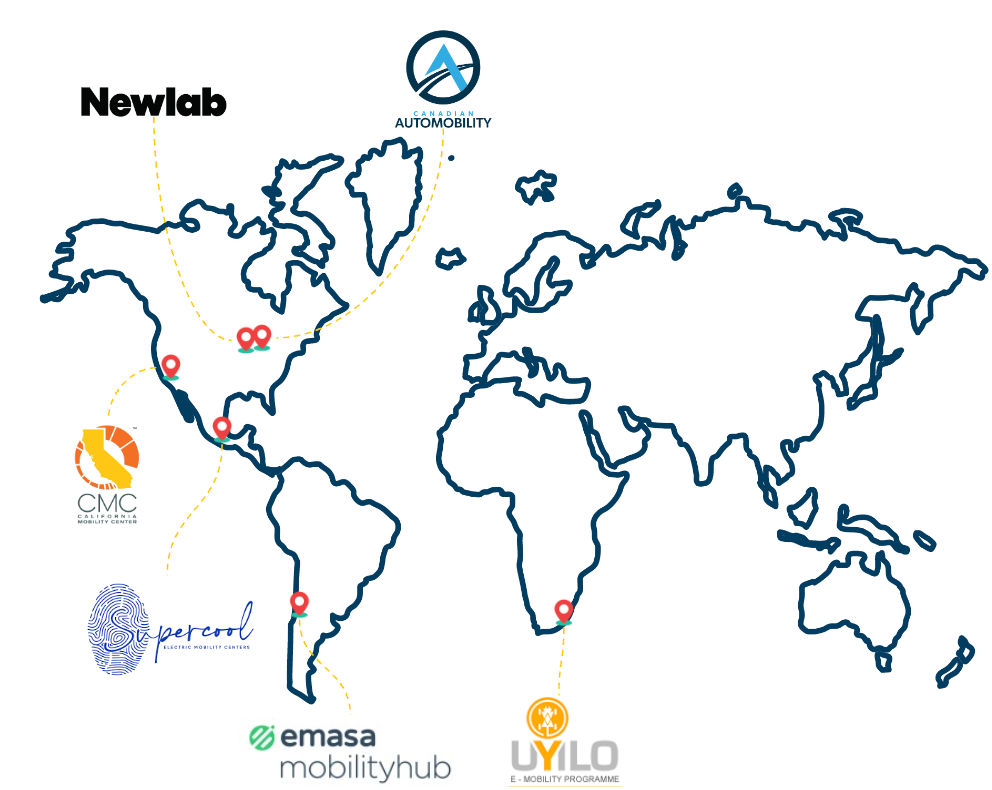
Actors in an ecosystem all have roles to play in managing changes brought about by the trend toward e-mobility. But as with any major transition, new players can help spur innovation. Mobility innovation hubs can bring new thinking, new resources, and new ways of working to take advantage of new opportunities. These hubs come in different forms depending on their specific goals and the context in which they operate, but have some features in common. Broadly speaking, they exist to bring together and support players in their ecosystem such as entrepreneurs, small and large businesses, investors, government, academia, others) to advance shared goals in the areas of future mobility. They may be standalone non-profit or for-profit organizations or partnerships, and they engage in a variety of activities depending on their audience and goals. Among the hubs we feature, business and technology support for commercialization and scale up of new mobility solutions are among the most popular services; these include consulting services, ramp-up manufacturing facilities and equipment, testing environments for new products or services, and product showrooms. Several also offer co-working space for entrepreneurs and companies, training opportunities, and events for industry members and the general public.
Mobility innovation hubs are carving out new spaces and roles in the ecosystems in which they operate. While not all hubs engage with all types of players in an ecosystem, they can provide value to all, as we note below. These hubs can also support other aspects of an ecosystem such as the infrastructure, policy framework and workforce. On the issue of infrastructure for example, hubs provide space and equipment to support companies and strengthen networks through convenings. Hubs can also improve public-private sector collaboration by bringing together government and companies, thereby supporting policy frameworks. And with respect to the local workforce, hubs also help upskill and reskill the local talent and build talent pipelines.
FIGURE 2:
Value that hubs can provide in their ecosystem

In our report we share details of the six hubs examined in Detroit, US; Windsor, Canada; Sacramento, US; Puebla, Mexico; Santiago, Chile; and Eastern Cape, South Africa. This will help you understand what type of initial investment is needed for such an endeavor, what kinds of revenue sources can support hub operations, and the range of services that can be provided by a hub. We also share key insights and takeaways for those interested in establishing a new hub in their area, including how to determine the value proposition and how to position it in the local ecosystem. At the same time, we recognize that it may not be feasible or beneficial to create a new organization in every context, so we also include recommendations for actions that existing players can take to support their local ecosystem for e-mobility.
We look forward to following the evolution of the hubs featured in this report and invite you to reach out if you are part of a different hub or interested in applying the findings to your context. We are excited about the opportunities to push the boundaries of innovation and create new platforms for stakeholders to catalyze collaboration to drive e-mobility around the world.
This report was developed as part of WDI’s Chihuahua Charging Forward project with the State of Chihuahua in Mexico. You can learn more about this project here.
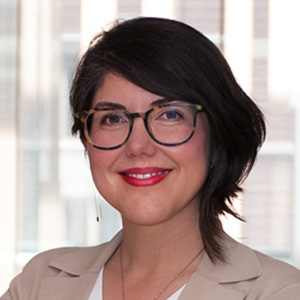
Diana Páez
Senior Director, Energy & Mobility
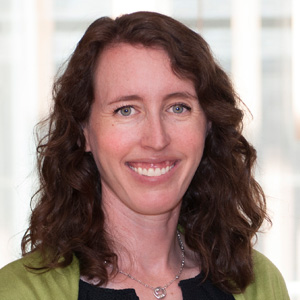
Dana Gorodetsky
Program Manager, Energy
Time: 8 AM EDT / 3 PM EAT / 5:30 PM IST
Date: Tuesday, April 16, 2024
Location: Zoom
Private sector innovation is a cornerstone of the efforts to bring clean cooking to the over 2.3 billion people worldwide who presently lack it.
The Clean Cooking Alliance (CCA) has supported over 25 clean cooking companies through its Venture Catalyst program, which helps firms attract investors, and grow their leadership and technical capacity to scale. Supported companies like BioLite, BURN Manufacturing, KOKO Networks and Sistema.bio have brought different product and business strategy innovations to the forefront. These include high-tech solutions like electric induction cookers, new fuels such as ethanol, targeted marketing, and business model solutions such as special purpose financing vehicles, carbon financing, and pay-as-you-go customer financing mechanisms.
The April 16 discussion, “Front Burner: How Business Model Innovation is Driving the Clean Cooking Industry,” will be hosted by the William Davidson Institute at the University of Michigan (WDI), and will feature panelists from CCA and these four trailblazing clean cooking companies with operations in multiple countries. Panelists will share their strategies for growing market size and scale, as well as barriers and enablers to implementing innovation. To learn more about the state of the clean cooking industry, click here for the CCA’s 2023 Annual Report.
WDI is supporting the learning objectives of the Clean Cooking Alliance Market Strengthening Program by developing innovative methods to measure the effectiveness of market strengthening interventions. The Institute is providing programmatic and data support, informing programmatic adaptations and pivots, and contributing to knowledge products targeting clean cooking enterprises, funders, policymakers and other stakeholders.
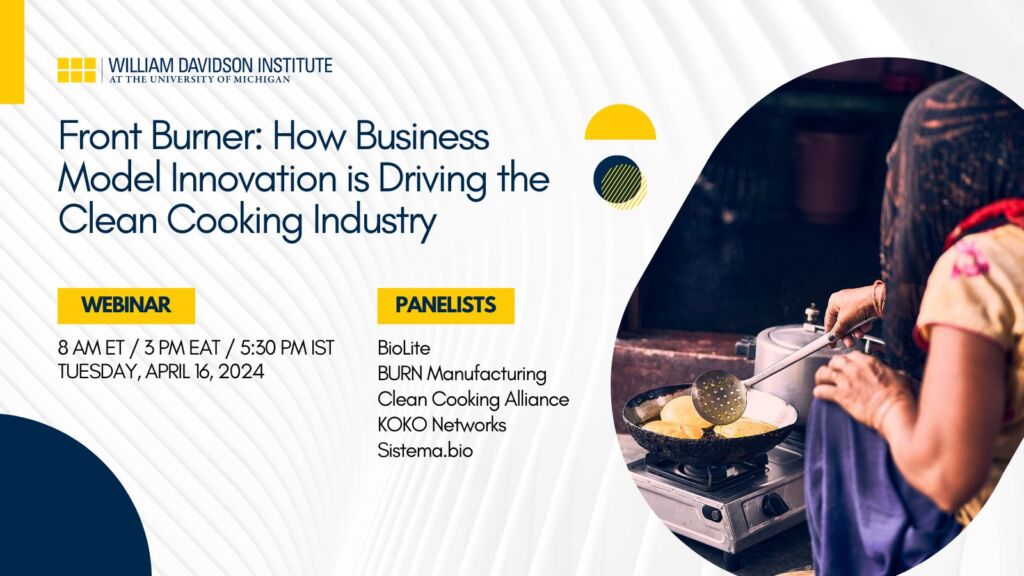
Photo: Participants at the NGO Leadership Workshop Warsaw during a session on Networking.
For decades, the William Davidson Institute (WDI) at the University of Michigan has held Ukraine close to its mission. When the Institute was founded more than 30 years ago, Eastern Europe was its very first geographical focus area — and for good reason. At the time, there was no guarantee that countries on the other side of the fallen Berlin Wall would embrace and deliver market-driven economies. Rather, there was concern that they would revert to government-planned economies. Those early WDI educational projects in Eastern Europe reflected the Institute’s core purpose: sharing the tools of commercial success with students, partners and other stakeholders to build both lasting economic and social prosperity.
While the conditions in Ukraine and Eastern Europe have certainly changed over the course of three decades, WDI’s commitment to the region has remained strong — even stronger after Russia invaded Ukraine nearly one year ago.
WDI’s NGO Leadership Workshops are one example of this dedication. Run in partnership with the Weiser Center for Europe and Eurasia (WCEE) at the University of Michigan, the workshops engage and guide nonprofit groups providing a variety of social services during times of struggle. The most recent workshop, which took place in October in Poland, showed just how crucial these sessions can be for participants.
With the destabilizing impact of war in the region, it is more important than ever to invest in civil society, explained Geneviève Zubrzycki, Director of the WCEE. And NGOs are key in that process.
“For NGOs working with Ukrainian refugees, there’s a level of urgency and human tragedy that we can’t ignore,” said Zubrzycki.
These biannual four-day workshops have been held in Slovakia and Poland since 2015. They bring together nonprofit leaders to network with one another, learn about topics close to their work, and connect with global experts. The sessions regularly cover planning and sustainability, NGO management, marketing strategies, advocacy and fundraising.
It’s powerful work that many of these managers would be unable to tackle on their own, but through the support of WCEE, they can come together without being saddled with the cost of tuition, room, or travel. Leaders can focus entirely on boosting their impact at home, and the coursework is built to do exactly that. “Each session raised important points that I will consider in my work with my team at our NGO,” said a Romanian participant, one of the 24 leaders who joined the workshop in Warsaw.
For NGOs working with Ukrainian refugees, there’s a level of urgency and human tragedy that we can’t ignore.
Geneviève Zubrzycki, Director of the WCEE.
For NGOs working with Ukrainian refugees, there’s a level of urgency and human tragedy that we can’t ignore.
Geneviève Zubrzycki, Director of the WCEE.
The 2022 workshop in Warsaw was scheduled prior to Russia’s full-scale invasion of Ukraine in February 2022. War had fallen on communities across the country, and Ukrainians fled the violence with whatever they could carry, clinging to family members and ditching cars when they ran out of gas. According to the UN Refugee Agency, 6.3 million people from Ukraine have been recorded crossing international borders into neighboring countries including Poland and Moldova since the invasion. The effects have sent a wave of challenges through the continent.
As WDI planned the workshop in 2022, it was impossible to ignore the growing pressure placed on regional nonprofits. WDI and WCEE worked to adapt the program to meet the realities on the ground.
“Dedicating the workshop to NGOs working with Ukrainian refugees made it possible for us to tailor sessions to their specific needs. It also created a safe space for them to discuss difficult topics,” said Zubrzycki.
WDI similarly shifted its curriculum to meet the needs of the many NGOs in the area serving Ukrainian refugees. Experts joined to share advice on maintaining digital security, planning strategically during crises, avoiding staff burnout, and working with people with post-traumatic stress disorder.
“The entire workshop was driven by on-the-ground needs,” explains Amy Gillett, Vice President of Education at WDI. “It was developed with a design-thinking approach. We considered what the organizations’ immediate needs were and what they were grappling with, and then we created the curriculum around that, focusing on the most pressing needs.”
Working for an NGO operating in a warzone carries “all of the stresses and drama of a normal workplace raised to 11, then add in the fact that everyone you’re working with has left everything they own, is stressed through the roof, and perhaps has lived through various war-related traumas,” explained Eric Fretz, a professional educator and coach focused on personal development, emotional intelligence, and resilience who teaches at the University of Michigan. Fretz led conversations at the workshop about post-traumatic stress disorder, trauma, emotional intelligence and mental strength.
He dug into the basics of trauma with participants and shared advice on managing their own stress, which he hopes will create a ripple effect. “Leaders can share this with their team, and then everyone on their team is much more able to take care of those that they encounter. It’s an upward lift.”
Relationships are everything — in serving people, in building businesses, and in running nonprofits. “These groups need to know each other to be more effective,” Gillett said. “The connections that take place outside of the formal instruction are just as important as the skills that they’re learning in the classroom sessions. It’s during these informal conversations where resources and ideas are shared that are critical to their success.”
Participants at the NGO Leadership Workshop spent time together talking about their struggles, joys and plans. They shared tips over morning coffee for better reaching refugees and advice on soliciting global support for long-term aid while walking through Warsaw’s Old Town on a guided tour offered as part of the workshop. “We were left with so many brilliant acquaintances and friendships, and we have gathered priceless information,” said one participant from Georgia.
WDI has seen the bonds built during past workshops flourish after participants returned home — and the Institute is just as dedicated to continuing to support long-standing connections in Ukraine. Though it was forced to suspend a project that would have sent four University of Michigan MBA students to the Lviv Business School of Ukrainian Catholic University (LvBS), WDI President Paul Clyde recently spoke to the university’s Vice Rector Sophia Opatska about the role universities and students will play in country’s resistance and rebuilding.
Workshop participants, particularly ones from Ukraine, were grateful to learn alongside leaders from other countries who were working on the ground with them. David Estrada, Program Coordinator at WDI, said “They were thankful that we were able to provide a space for them and be around other people doing this same type of work.”
Two NGO Leadership Workshops are planned for 2023, in Bratislava, Slovakia and Warsaw, Poland.
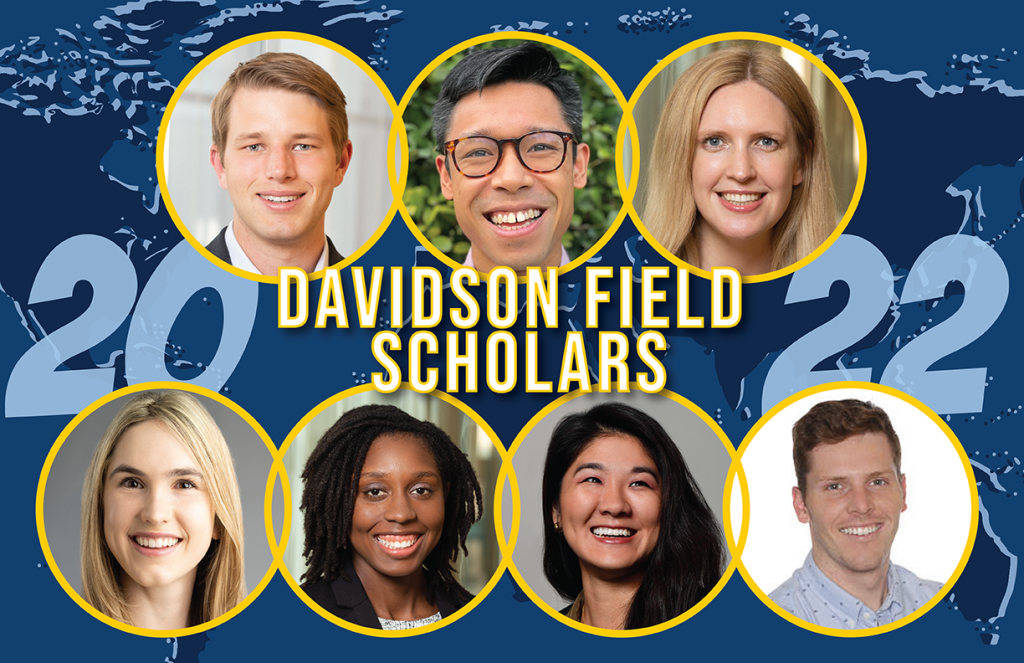
As an independent nonprofit with an education focus, the William Davidson Institute at the University of Michigan (WDI) has relied on students as essential drivers for impact since its founding 30 years ago. Students participate in each stage of WDI’s projects, from data analysis to strategy development to implementation. And for the last three years, the University of Michigan students most dedicated to WDI’s mission to equip economic decision-makers in emerging markets with the tools for success have earned special recognition as Davidson Field Scholars.
WDI again is proud to welcome its next cohort of these important student contributors.
“Davidson Field Scholars provide valuable insights into multiple WDI projects, ranging from consulting work with partners to program support for organizations in low- and middle-income countries,” said WDI President Paul Clyde. “They play a critical role in our Michigan Academy for Developing Entrepreneurs and WDI’s International Investment Fund.”
This year’s group of Davidson Field Scholars is no different. Each brings distinct expertise — from medical to high-level marketing experience — to the specific challenges of WDI’s global partners. In collaboration with WDI partners, students have helped organizations execute technology updates in global markets, push forward local health equity measures, and develop go-to-market strategies for essential products, among other efforts.
Students who become Davidson Field Scholars are dedicated to finding business-empowered approaches to many economic and social issues in low- and middle-income countries (LMICs). They also demonstrate students’ commitment to understanding and sharing business solutions with partners through consulting, analyzing, and managing complex dilemmas for organizations around the globe, Clyde said.
To earn the designation, scholars must complete two courses or programs through WDI. Many students work with WDI to complete their Multidisciplinary Action Project (MAP) as part of their MBA degree. Scholars may also participate in a WDI-supported internship, independent study, the International Investment Fund, or the Michigan Academy for the Development of Entrepreneurs (MADE). Through these opportunities, partner organizations secure imperative guidance and students gain meaningful skills. “Within just a couple years, these scholars develop experiences that many of our partners rely on,” said Clyde.
WDI is looking forward to working closely with its current team of Davidson Field Scholars and seeing the powerful contributions they will undoubtedly bring to its global partners, academic programming, and the business world as a whole.
Learn more about this program on our Students page.
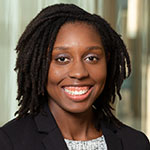
Burnett is dedicated to guiding brands toward powerful marketing plans, and she is working toward her Ross MBA with the goal of driving brand management strategies. Before beginning her MBA, she earned her Anthropology degree from Dartmouth College. Burnett completed a WDI-sponsored MAP project in Uganda, where she developed a go-to-market strategy for diabetic products. She plans to work with the International Investment Fund and participate in either a WDI-supported internship or independent study. After graduation, Burnett plans to return to PepsiCo Frito-Lay, where she completed a marketing internship.
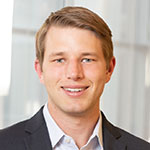
Hendon worked with cloud software development and global technology expansion teams at Deloitte before beginning his MBA program at Ross. He also earned his degree in International Business and Marketing from the University of Georgia prior to starting at U-M. With a concentration in healthcare management, Hendon is focusing on healthcare product commercialization, growth strategies and health equity. He has traveled to Uganda to build a diabetes product commercialization strategy as part of a MAP project and interned with Medtronic’s Surgical Innovation team to evaluate global startups. Hendon is also slated to work on a project for a rehabilitation clinic in Ghana and plans to join the International Investment Fund.
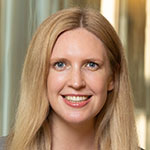
Jahnke is focused on pivoting to a career in healthcare investment banking. After earning her undergraduate degree in history and political science from the University of Michigan, Jahnke worked in the U.S. Department of Justice’s Antitrust Division. As a Ross MBA student, she completed a WDI-coordinated MAP project at the Aravind Eye Care Hospital in India. She is currently a research assistant on a project designed to understand the role of Aravind’s culture in a hospital they have been involved in starting and running in Nigeria. Jahnke will be joining Morgan Stanley after completing her degree at the Ross School of Business.
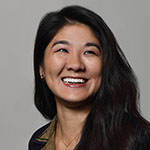
Lam is a dual-degree student, expecting to graduate with a Master of Business Administration and a Master of Urban and Regional Planning. Before joining the Ross School of Business, she earned her Bachelor of Arts in Sociology and Psychology at U-M. Lam has completed a WDI-sponsored MAP with TIP Global Health, mapping the production cycle and delivering a cost analysis for ready-to-use therapeutic food for people who are malnourished. She not only grew her business experience but also boosted her understanding of poverty and desire to live as a global citizen. Lam plans to begin a WDI-approved independent study and then work at a development-centered organization.
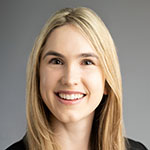
Before joining the Ross School of Business, McMichael earned her Biomolecular Science degree from U-M. She is currently pursuing both a Ross MBA and a Doctor of Medicine, hoping to make impactful, system-level changes to the worlds of academic medicine and global health equity. She completed an internship focused on developing a business plan for a rehabilitation clinic in Ghana, merging her business and healthcare expertise. McMichael has completed a WDI-sponsored MAP project and plans to participate in a WDI-approved independent study.
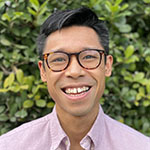
Before beginning his Master of Business Administration, Naovarat earned a Bachelor of Arts in Philosophy from Texas A&M University, graduated with his Doctor of Medicine degree from the University of Texas Medical School, and worked as a physician-researcher. He has focused much of his time at the Ross School of Business on venture capitalist endeavors including participating in venture fellowships, founding the Michigan Venture Consulting group, and interning at UPMC Enterprises. He also joined a WDI-sponsored MAP project, working with Clínica de Familia La Romana in the Dominican Republic to aid in the implementation of a new imaging device for the clinic. Naovarat plans to participate in the International Investment Fund with WDI and transition to a venture firm, perhaps with a focus on biotech, after graduation.
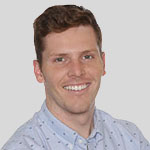
Plamondon has been a member of the WDI-supported International Investment Fund, where he is the Managing Director. Before beginning his MBA, he earned his Bachelor of Arts from the University of Notre Dame. After graduation, he traveled to Zambia to work with a mobile payments company, and he has since worked with a healthcare business in Kenya. He led the International Investment Fund’s first investment, supporting a startup in Kenya. Plamondon hopes to work at a startup focused on clean energy or financial inclusion for sub-Saharan African populations after completing his MBA.
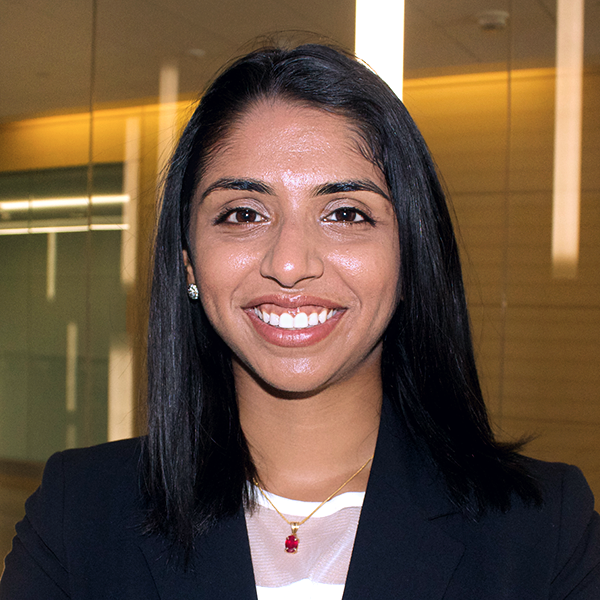
Rao graduated from the University of Texas with a Bachelor’s Degree in Human Biology and completed a Master’s of Public Health with a focus in Chronic Disease Epidemiology and Regulatory Affairs from Yale University in 2018. Before pursuing an MBA Ross, Rao worked in healthcare analytics at several large firms, including CVS Health and Blue Health Intelligence. Rao is developing an independent case study, evaluating the Aravind Eye Care System model and its replicability in Nigeria. In the Winter 2023 term, Rao plans to participate in the WDI-supported BA685: Healthcare Delivery in Emerging Markets, with a special focus on the Kisii Hospital Vision Center in Kenya. Rao plans to apply her degree and experiences after graduation at Boston Consulting Group, with a focus on health care.
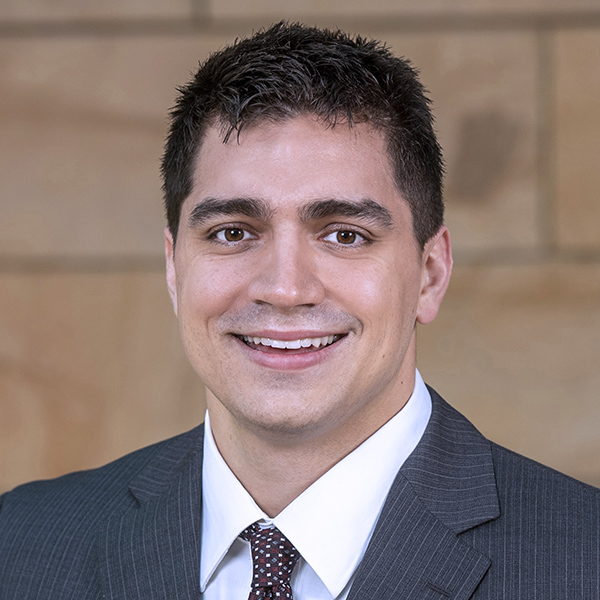
Rajabian graduated with a Bachelor’s Degree in Biomedical Engineering from the University of Michigan in 2011 and is a licensed Professional Engineer in the State of Michigan. A resident of Detroit, Rajabian has worked for DTE Energy for ten years, including currently as General Supervisor at DTE Energy’s Warren Service Center. Rajabian also is a co-owner of an engineering company and a fintech start-up, Relic. Rajabian participated in a WDI-sponsored Multidisciplinary Action Project (MAP) by providing international market entry analysis for a US healthcare provider in Vietnam. As a Davidson Field Scholar, Rajabian is interested in providing consulting services in healthcare, energy, or financial technology — focus areas he plans to apply to his career post graduation.
Note: This article was updated Jan. 5, 2023 to reflect the addition of Geetika Rao and Bryce Rajabian.
Click the image to watch the recording of the Ralph J. Gerson Distinguished Lecturer Magatte Wade.
The William Davidson Institute at the University of Michigan (WDI) celebrated its 30th anniversary with the in-person return of the Ralph J. Gerson Distinguished Lecture. The Nov. 10 evening brought together members of the WDI community for a celebratory dinner and moving speech from Magatte Wade, entrepreneur and advocate for African dignity and prosperity.
The lecture is named in honor of the Institute’s longest serving board member, Ralph J. Gerson. Gerson led Guardian Industries Corporation in multiple roles for years, and he currently serves on philanthropic and policy boards across Michigan and the U.S. He is now the Director of the William Davidson Foundation.
Wade kicked off her talk by highlighting the connection she felt with WDI. “When I discovered WDI, I thought, ‘Where have you been my whole life? Maybe I should have started with you,’” she said. Wade is a strong advocate for easing and boosting private business, particularly small- and medium-sized businesses, through economic freedom in Africa. Her work aligns closely with the mission at WDI: equipping economic decision-makers in emerging countries with the tools of commercial success.
Wade, who was born in Senegal and later moved to Europe and the United States, spent years of her life wondering why communities in Africa were suffering from poverty and those in other parts of the world were thriving economically. Eventually, she concluded that the complex and detrimental business policies in many African nations were stunting their economic growth — and she began to advocate for smoother, easier, more functional business opportunities across the continent.
I can’t think of a better ambassador for the mission and the vision of the Institute, which is the power of business to deliver on economic growth and social freedom.
—WDI President Paul Clyde
“I can’t think of a better ambassador for the mission and the vision of the Institute, which is the power of business to deliver on economic growth and social freedom,” said WDI President Paul Clyde, as he welcomed her to give her “The Heart of the Cheetah: Entrepreneurship & Prosperity in Africa” talk. Describing her impact and connection to WDI, Clyde explained that Wade is a “tireless supporter of individuals and their ability to create economic value when given the opportunity to do so.”
After detailing the many-layered difficulties that arise when doing business in an African nation from strict government policies, challenging taxes and complex business systems, Wade asked the crowd whether they would choose to do business in a place that created roadblocks or one that allowed for a smooth path. That question, she said, provided the answer she’d been searching for all along. “At the end of the day, you are poor because you have no money. There’s not enough money to take care of your primary needs. You have no money because you have no income. What is the source of income for most of us? Jobs. Where do jobs come from? The private sector. And so don’t you then think that we should make it easy for businesses to be born and thrive.”
This conclusion set her on her path to boost economic freedom and business opportunities across the continent, through her own enterprises, speaking engagements, policy advocacy and powerful global fellowships. Her TED Talk, “Why it is too hard to start a business in Africa — and how to change it” has been viewed by over 600,000 people. She’s a Young Global Leader with the World Economic Forum at Davos, a TED Global Africa Fellow, and one of Forbes’ “10 Youngest Power Women in Africa.”
Wade has built multiple businesses in Africa inspired by diverse African traditions, including her most recent endeavor, SkinIsSkin.com. She urges the global community to shift its perspective from aiding African communities. Instead of creating a system that relies on aid, she tells global consumers to “buy African products made in Africa by Africans.” Her point: let business thrive, and Africa will thrive.
Wade has seen the impact her businesses and entrepreneurial mindset have had on herself and others. Her manufacturing-focused businesses have helped boost rural communities’ manufacturing facilities. Meanwhile, Wade continues to advocate for policy changes at the national and local levels through groups like the Atlas Network’s Center for African Prosperity. Still, she knows there’s more room for growth.
“Whatever we’ve been able to accomplish, it would be multiplied by the right business environment,” Wade said. “At the end of the day, I believe that business is the greatest force of good.”
Thank you to all who attended the event on Nov 16th. A recording of the event is now available (above) and on the WDI Youtube Channel.
Culinary-focused travel has become a hot trend within the tourism sector in recent years. Tourists increasingly prefer to let their taste buds decide how and where they travel. For cities and countries looking to market themselves, culinary tourism has become an essential and powerful branding element.
But can this kind of travel be about much more than food? Yigal Schleifer, the co-founder and editor-in-chief of Culinary Backstreets, will tackle that question and more during a talk hosted by the William Davidson Institute at the University of Michigan. The discussion, “Crossing Borders and Cuisines: A New Flavor of Sustainable Tourism,” is slated for 5:00–6:00 PM, Nov. 16 in R1230 of the University of Michigan’s Ross School of Business. The session is free and open to the public. It also will be broadcast via Zoom; click here to register.
Schleifer will explore how Culinary Backstreets, which provides tours in a dozen cities around the world, uses food-oriented travel to promote cross-cultural communication and sustainable tourism for more impactful experiences. Created in 2012, Culinary Backstreets covers the local and traditional food scene and offers immersive small group culinary walks in cities including Istanbul, Lisbon, Mexico City, Tbilisi, Tokyo, Barcelona and a half dozen more. The talk will also look at how the COVID crisis has impacted culinary travel and how this sector can be rebuilt with an eye towards sustainability.
Between 2002 and 2010, Schleifer was based in Istanbul, where he worked as a correspondent for The Christian Science Monitor and the German Press Agency (dpa). While in Istanbul he also co-founded Istanbul Eats, an award-winning blog about the city’s local food scene, and co-wrote a guidebook of the same name. He also launched “Istanbul Calling,” a blog about Turkish foreign and domestic affairs. Schleifer’s work has appeared in The New York Times, The Washington Post, Foreign Policy, Ha’aretz, The Times (London) and several other publications.
Schleifer was an advisory board member for the Livelihoods Innovation through Food Entrepreneurship (LIFE) Project, which supported and encouraged people to engage across cultures through entrepreneurship and job creation in the food sector. Since 2017, WDI’s Entrepreneurship Development Center has worked on the U.S. government-funded LIFE Project, in collaboration with the Center for International Private Enterprise (CIPE), IDEMA, Union Kitchen and the Stimson Center.
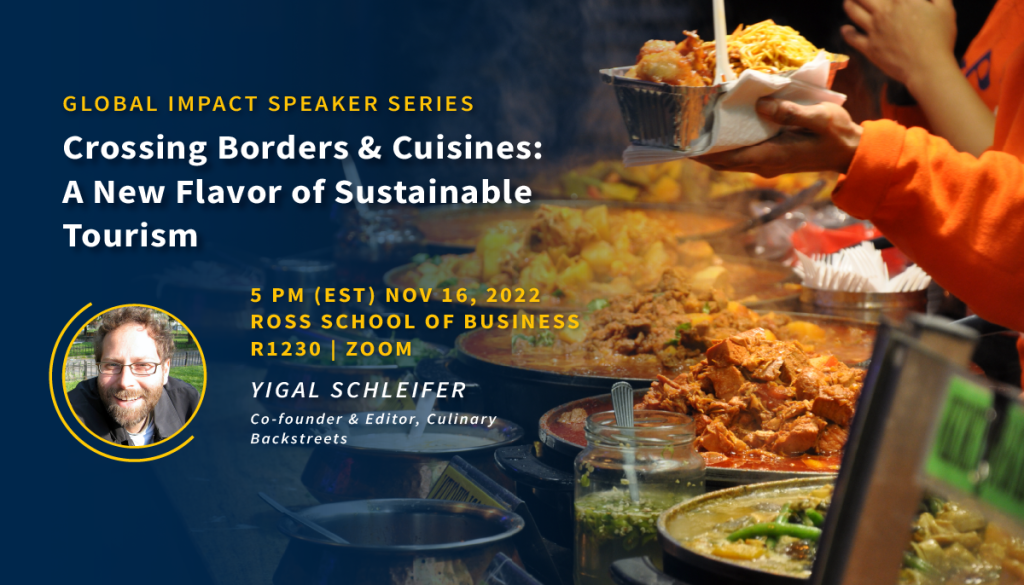
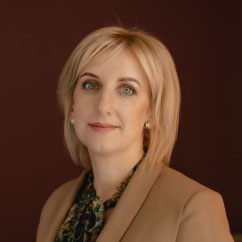
Q & A
A Discussion with Sophia Opatska, Vice Rector at Ukraine Catholic University—a WDI partner
Editor’s Note: Through student programs, projects and university partnerships, the William Davidson Institute at the University of Michigan (WDI) has worked in Ukraine for more than two decades. This year, the Institute planned to send MBA students to Lviv Business School of Ukrainian Catholic University (LvBS) to assess and make recommendations to improve their consulting process for small and medium-sized businesses. The project, the second in as many years with LvBS, was part of an expansion of the Michigan Academy for Developing Entrepreneurs (MADE).
But with Russia’s military advance in February, WDI and U-M decided not to send the team of four students to Lviv, which is located in western Ukraine. WDI President Paul Clyde has been in contact with Sophia Opatska, Vice Rector at Ukraine Catholic University. Opatska offered to give an interview to help spread the word about what is happening there and its greater context. Her responses were sent on March 5—the tenth day of the invasion.
Paul Clyde: Your university has been very active in a variety of areas in response to Russian aggression. How are you able to do that and what is the overall morale in your community?
Sophia Opatska: First of all, we should mention that our University is in the west of the country. Though we do not feel safe because the air is open and we think when Putin gets really angry, we will be the target. If not number 1, probably number 2. Of course, compared to east and south of Ukraine we are in a much better situation, but everybody tries to keep himself or herself busy and help. It not only creates some value for others, but also helps mentally to people. If you are just watching only news, it is really scary, creates a lot of anxiety and you are very unproductive in that way.
We also have a number of initiatives on the campus to help and keep (up) the morale. For example, we have very clear rules for people who are living with us as refugees. They have to get engaged in volunteering and social work and have meetings with our community. We are in communication with our students who left the country. And of course, prayer helps. We have a number of prayers that happen in our Church, which are also online and people can join. Psychology faculty created psychologically advisory, anyone can approach. Our law students are getting all the evidence, which they can provide to the International Court. Our historians are collecting a lot of stories to create (an) oral history of the war. Maybe right now it looks a little bit weird and strange, but it will be something crucial for the nation in a year, five or ten. In my class, students are writing appeals to international companies to stop work in and with Russia. Indeed, we know that our small contribution helps. (It is) one thing when the Ukrainian Office is putting pressure on the headquarters, but another thing when they start to be bombarded by letters from young people that you have to stop doing business with Russia and in Russia because you are financing the war.
We also communicate with various international communities and ask them to stop the rhetoric of the “Ukrainian crisis.” This is wrong rhetoric. We don’t have crises, we have a war. It is the tenth day of the war when thousands of civilians have been killed, where 7.5 million children are in danger and wording has to be correct.
We also communicate with various international communities and ask them to stop the rhetoric of the 'Ukrainian crisis.' This is wrong rhetoric. We don’t have crises, we have a war.
—Sophia Opatska
Clyde: You have been providing education to the youth of Ukraine for over twenty years. Can you describe how student views are different now than twenty years ago and how that is affecting the Ukrainian response?
Opatska: Over the last twenty years, we had two revolutions and a war: The Orange revolution in 2004, we had a Revolution of dignity 2013-2014 and it was a long-standing protest for three months during winter, which then succeeded and which made Russians and Putin so angry that they invaded part of Ukraine. Which means that war has been going on for eight years. So in some sense we already have experience of fighting.
Of course, young people who are now students of the University, in 2014 were between nine and 15 years old. So, this is a new experience for them. I would say that those who are older were able to get into work very quickly, we already had experiences with volunteering activities and maybe that is why all initiatives started so quickly. But for students, it is a new experience and I think they are going through a very huge learning process in that. But when you combine their initiatives and new ideas with the experience of those people who were in previous revolutions, who were in the war in the east of Ukraine, it helps a lot on both sides.
Clyde: Over the past thirty years, culminating in the current war, it has become clear that Ukraine is a mature independent country. How much do you think that fact versus some of the other stated reasons (e.g. NATO enrollment) is causing the Russian actions?
Opatska: Great question. I think that was a lot of manipulation that this is about NATO, that this is about us joining the EU. Putin is really furious that in 2014 we stood for democratic values, for human dignity, and for European values and he lost in it. And I think his plan was to have Russian tanks in a couple of hours in Maidan (the city center of Kyiv), and that is why he is targeting Kyiv so badly as a symbol of freedom and democracy, and obviously we went through the long journey of self-identification as a nation. The issue of language was very long used to divide Ukraine, but if you look on the people who are fighting the most at the moment – Kharkiv, Kherson, Zaporizhia, Sumy, Chernigiv – in many ways those regions are Russian-speaking regions and they are not ready to give (up) any piece of land. Probably the plan of Putin was to come and be greeted with flowers in those regions to rely on people who are against Ukraine, and we don’t see that. His global plan is to show the whole world that democracy is not working. The rhetoric of Ukraine as a failed, corrupted state was very actively supported in various media and it was also one of the plans of Putin and (his) servants. Unfortunately, it was also very well accepted in the west, and I think we did a huge journey as I mentioned, but I think the reflection should be done, not only by us, but reflection should be done in the west. We get some signals by admiring (the) courage of the Ukrainian people, and how great our President shows leadership, character. But I think the reflection should be done much deeper: Who we are and what is our effort to save the whole of humanity.
Clyde: What is the main thing you want the world to know about how you, your university, and your country are reacting to the war with Russia?
Opatska: So, there are two levels, I am always saying we have short-term planning and long-term planning. We don’t think in weeks, we think in hours, and days and we think in months and years that are very important for us that give us hope.
Of course, there is so much help short-term and we really appreciate that help from many countries: help to our army, help to refugees, welcoming people who right now need a home, food, and some comfort. We are very grateful for bigger and smaller efforts. At the same time, we as an educational institution need to think about what will be our role in the future.
We truly believe that the victory will come: We do not know when and what will be the price. In case we fail, the whole world will fail. No matter if you are in Portugal, France, the UK, or North America, the ocean does not help much when nuclear power is being used. And the whole system of democracy can fail to be totalitarian, therefore Ukraine is on the frontline of saving it.
So our role as University will be very significant when we will be rebuilding the country and we really need to have a Marshall Plan for Ukraine and our human capital. Though many people leave Ukraine now, we need the best people to come back.
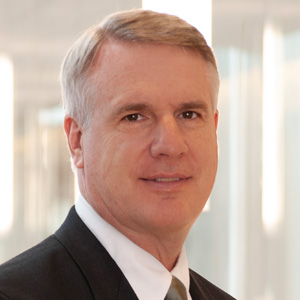
Paul Clyde is president of the William Davidson Institute at the University of Michigan.
Happy workers, with their basic needs met, will be more productive workers. More productive workers contribute positively to the bottom line. It sounds like common sense, but proving this with hard data has not always been the norm.
Achyuta Adhvaryu is doing just that. Adhvaryu, associate professor of Business Economics and Public Policy at the Ross School of Business at the University of Michigan, and his work with Good Business Lab (GBL) are proving the hypothesis that small improvements in worker happiness have a positive return on investment for companies.
Adhvaryu’s work has found its place with the William Davidson Institute’s consulting services, in the newly formed Labor Practices group. The new practice area will add value to the work happening across WDI, and will enhance learning opportunities at Michigan Ross and U-M, while demonstrating that good labor practices are an important tool of commercial success.
Adhvaryu, along with the team at GBL, test innovative workplace policies via large-scale randomized control trials in real business environments, to quantify the impact of employee-oriented investments. To date, GBL’s work has focused primarily on four areas: a holistic view of physical and mental health; skills training programs; worker voice; and, hiring and selection. This work has shown that even small investments in workers’ happiness and well-being can sometimes have a significant impact.
“It’s important to understand the impact poverty has on everyday life and how if you eliminate or mitigate those barriers that hold people back you can unleash their potential,” said Adhvaryu. “Our work is bringing a unique understanding of worker well-being, backed by rigorous data and impact evaluation methodology, to the discussion.”
Business metrics surrounding return on investment and attention to a profitable bottom line are commonplace when implementing new procedures and investing in capital intensive equipment. The practical output of Adhvaryu’s research has led to the development of a portfolio of programs and workplace policies based on evidence demonstrating that worker well-being through specific policies produces a positive return on investment when implemented properly.
As an example, GBL recently completed an innovative worker voice project at Shahi Exports, the largest garment manufacturer in India and one of the largest in the world. The study was completed with support from Michigan Ross students, WDI and financial assistance from Humanity United. The result was Inache, a new, mobile-based technology that empowers workers to communicate anonymously to share concerns and problems, and report grievances with their employer. The low-cost, easy-to-use technology solution came about after two randomized controlled trials conducted at Shahi facilities, both demonstrating a 3-4% reduction in absenteeism with the use of similar tools.
“Often workers don’t communicate grievances due to fear of repercussions. We conducted three trials in which we provided workers with the right kind of voice and a solution that was easy to access,” said Adhvaryu.
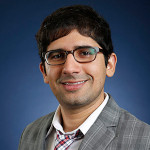
Often workers don’t communicate grievances due to fear of repercussions. We conducted three trials in which we provided workers with the right kind of voice and a solution that was easy to access.
- Achyuta Adhvaryu, associate professor of Business Economics and Public Policy at the Ross School of Business at the University of Michigan
The insights from those trials enabled the GBL team to develop, test and implement Inache. The technology, which GBL built from scratch is rooted in principles of human-centered design. The low-cost solution also helps to bridge important usage barriers, such as low technological literacy rates among workers.
“Inache was rigorously designed after intensively studying different opportunities for communication, and determining what would be most effective for both employees and the employers,” said Adhvaryu. “WDI-Ross student team then helped to develop a market entry strategy for the product.”
Michigan Ross students took part in this process through the Multidisciplinary Action Project (MAP) course. MAP is Ross’s flagship action-based learning course, in which MBA students consult with organizations to solve real-world problems under guidance from faculty advisors at the business school. Each project requires analytical rigor, critical thinking and teamwork. The Ross MAP team benefited from the support of faculty advisors Adhvaryu and Paul Clyde, WDI president and Michigan Ross professor, as well as WDI and GBL. This collaboration will pave the way for more opportunities for Ross students to work together with WDI and GBL.
“The work that Ach is doing examines what holds people back from growing their income and improving their well-being,” said Clyde. “Ach and his team have developed programs that use randomized controlled trials to show that improving worker well-being can and does positively impact employers in ways that can affect the bottom line.”
The continued research potential and the practical applications of Adhvaryu’s work and GBL will continue to bring benefits to Ross and WDI. The collaboration is another offering for Ross MAP student teams, as well as a new consulting strength for WDI and its partners.
“There are great opportunities for students to get involved during their education U-M, working with firms to solve their real-world problems,” said Clyde. “That’s what this is focused on – any tools that improve labor practices will increase the probability of commercial success and thus are very much in line with what we do at WDI.”
WDI has a focus on the development of business models and practices that come out of real research and improve the ability of a company to operate profitably. Profitable companies will employ people and provide goods and services that consumers value, thereby providing social value. The mission of WDI aligns with the work that Ach and GBL are doing to achieve this.”
GBL and WDI have found a way, using hard evidence that is rigorously sourced from academic studies, to change the culture around workplace programing for workers and help to make it a key part of a firm’s investment strategy. The end goal is to convince companies that if they incorporate key principles of good labor practices in their business operations, they can impact productivity and show a positive effect on profits and their bottom line in addition to meaningfully improving their workers’ well-being.
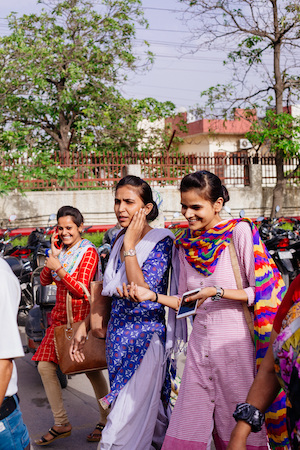
Lead Photo: Workers in a Shahi Exports shop floor in Bangalore, India. Image credit: Nayantara Parikh
